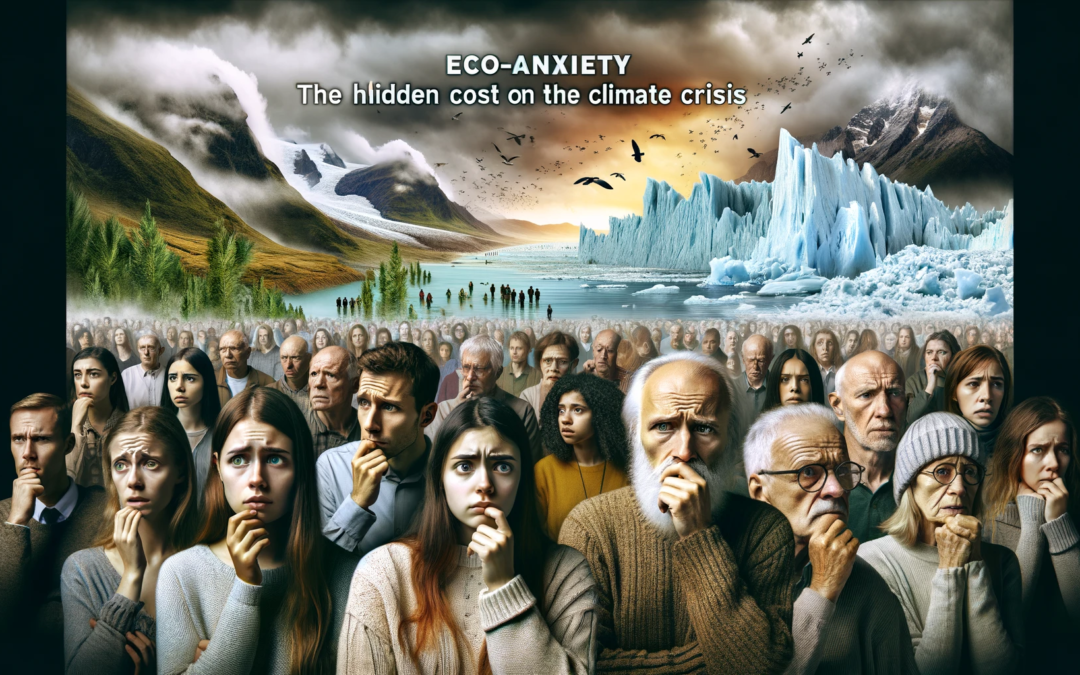In the frost-laden halls of the 2024 World Economic Forum in Davos, a discourse unfolded that resonated with the icy chill of the Swiss Alps yet blazed with a topic of global immediacy. The address by the Heritage President, a meld of foresight and prudence, introduced a compelling hypothesis: Is the pervasive apprehension about climate change becoming the principal catalyst of mental health crisis? This notion, swathed in a cloak of concern and inquisitiveness, beckons a thorough investigation.
The Generational Echo of Eco-Anxiety
The term “eco-anxiety” has increasingly permeated psychological parlance. It encapsulates the angst and despair concerning environmental degradation. This phenomenon, although universally felt, impacts different generations in distinct ways.
The Youth: Inheriting a Precarious Future
The younger generation stands at the threshold of inheriting an ecologically uncertain world. Visualize a teenager inundated with dire headlines of melting ice caps and devastating wildfires. The burden of global environmental challenges weighs disproportionately on their unready shoulders. This generation experiences a unique brand of eco-anxiety – one that is immediate, visceral, and intertwined with their developmental identity.
Adults: The Custodians of Change
The adult population, nestled between concern for their offspring and responsibility towards their ancestors, faces a different kind of eco-anxiety. They grapple with the responsibility of enacting change while mitigating the effects of environmental degradation in their personal and professional lives. This generation’s anxiety is often characterized by a sense of urgency and a struggle to find a balance between action and despair.
The Elderly: Witnesses to a Transforming World
The elderly have witnessed the most significant environmental shifts. Their eco-anxiety is tinged with a sense of loss – for the world as it was and for what future generations might never experience. However, their perspective is also a repository of wisdom and resilience, offering valuable insights into enduring environmental tumult.
Manifestations Across Age and Time
In educational institutions worldwide, there is a noticeable increase in eco-centric discussions. Playgrounds, once the bastions of carefree chatter, now echo with conversations about sustainability. This is not mere anecdotal evidence; research substantiates these shifts. A survey among high school students showed over 60% experiencing regular anxiety over environmental conditions.
The Social Media Conundrum
Social media, while a potent tool for awareness, often serves as an amplifier of despair. The relentless stream of catastrophic imagery and predictions exacerbates the anxiety, especially among the young, creating a digital echo chamber that magnifies fears and fuels a sense of hopelessness.
Personal Narratives: The Human Face of Eco-Anxiety
Consider the story of a 14-year-old climate activist from Sweden, whose impassioned orations have garnered global attention. Her journey personifies the weight of eco-anxiety borne by the youth. In the U.S., a group of teenagers sued their government over climate inaction, a stark indicator of their deep-seated fears and desperation.
Psychological Repercussions Across Generations
The continuous stress associated with eco-anxiety manifests in various forms. Among the youth, it leads to anxiety, depression, sleep disturbances, and even physical symptoms. Adults often report a sense of overwhelming responsibility and guilt, while the elderly grapple with grief and a profound sense of loss.
Navigating the Maze: A Path Forward
Addressing this multifaceted issue demands a comprehensive strategy. Educational systems must adapt to empower and inform. Psychological support tailored to eco-anxiety should be accessible in schools and communities. Active engagement in environmental solutions can be a powerful counter to feelings of helplessness, providing a sense of agency and hope.
Conclusion: Balancing Awareness and Hope
The Heritage President’s discourse at Davos highlights a crucial intersection of climate change and mental health across generations. As we tread this complex path, balancing awareness with hope, action with education, and alarm with empowerment becomes pivotal. The mental well-being of our society, spanning all ages, hinges on finding and maintaining this delicate equilibrium in the face of a changing world.










